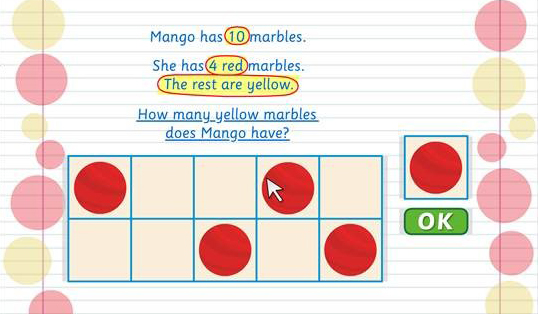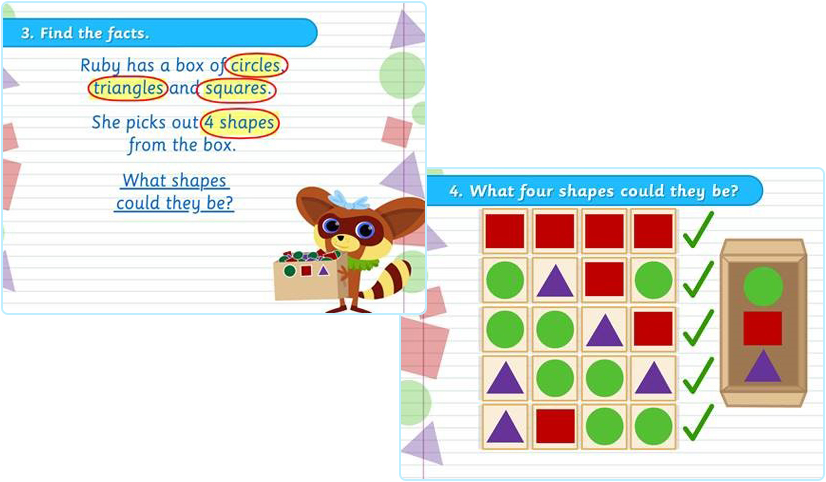Mathseeds Problem Solving and Critical Thinking
How does Mathseeds develop higher‑level thinking skills?
The Mathseeds lessons teach a variety of problem solving strategies with children using interactive manipulatives to solve increasingly difficult maths problems. Every Mathseeds lesson also has a printable problem‑solving task targeting higher‑level critical thinking skills. These challenge pupils from Reception to Year 3 to develop a toolkit of strategies to reason, interpret, analyse and solve increasingly complex problems.


1

Online Lessons Teach Strategies

Mathematical thinking and problem-solving in every lesson.
- Strategies, models and interactive manipulatives help pupils learn how to solve problems.
- Mathematical models include number lines, number charts, part-part whole, number patterns, place value, number bars, graphs and many more.
- Lessons promote thinking mathematically and developing number sense.
- Scaffolded learning enables pupils to apply their learning across a range of activities.
2

A Structured Approach Builds Confident Pupils

Identify the question, find facts, apply and evaluate.
- Pupils tackle each problem using the same structure.
- Underline the question, circle the facts and choose a strategy.
- Allows pupils to develop critical thinking skills whatever their ability level.
3

Printable Problem Solving Tasks for Every Lesson

200 problem solving and critical thinking activities.
- Integrates problem solving into every lesson.
- Develops higher-level thinking skills across all mathematics domains.
- Strategies include act it out, draw diagrams, write equations, use tables, mental computation and logical thinking.
- Pages include collaborative elements and analysis where pupils are asked to think about their thinking, communicate this to others and justify their mathematical reasoning.
4

Online Games

Mini games in the Arcade prepare pupils for more difficult problem‑solving opportunities.
- Problem solving strategy games in the Games arcade develop logical thinking.
- Introduces early problem‑solving thinking.
- Fun, interactive and levelled to challenge pupils.
- Games include: Pack Your bags, Cow Jump, Where’s My shadow, Shape Tip, True or False.


